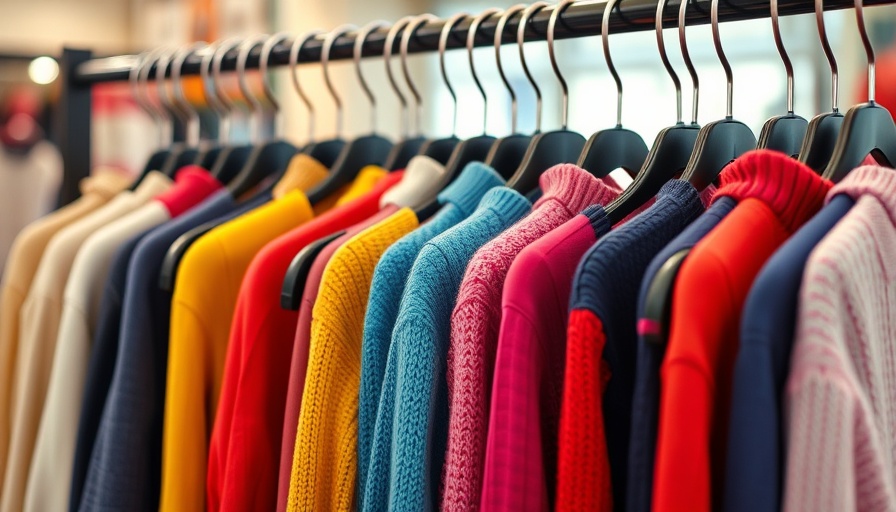
Unearthing the Riches of Second-Hand Shopping
If you're looking to save money, score unique items, and contribute to sustainability, second-hand shops are becoming a must-visit destination. These stores serve as treasure troves where both personal and business needs can be met at a fraction of the cost of new items. From vintage clothing to rare collectibles and quality household goods, the variety is endless. Engaging in second-hand shopping not only enhances your wardrobe or home decor but also aligns with eco-friendly consumer habits.
Why Second-Hand Shops Matter for Entrepreneurs
Buying pre-owned not only benefits your wallet but also supports local businesses, making a positive impact on the community's economy. Entrepreneurs looking to develop their startups can analyze the trends emerging from these shops to understand consumer preferences. With strategic planning, potential business owners in the retail sector can explore opportunities in the second-hand market while promoting sustainable practices.
The Green Side of Shopping: Sustainability and Profit
One of the most critical aspects of second-hand shopping is its role in promoting sustainability. By choosing pre-owned goods, you're actively reducing waste and advocating for eco-friendly consumer habits. Research indicates that retail sustainability is more than just a trend; it's a growing necessity among consumers who prioritize environmental consciousness. For small business owners, understanding these shifts can inform more profitable business investments while reflecting consumer values.
Maximizing Your Second-Hand Experience
To navigate the second-hand shopping landscape successfully, entrepreneurs should employ specific strategies. Visiting shops during off-peak hours often leads to the best finds, as inventory is typically fresher. Creating a targeted shopping list can help streamline your experience, while also allowing room for unexpected treasures that might arise.
Community Engagement: The Heart of Second-Hand Shops
Second-hand shops foster a unique atmosphere that promotes community interaction and collaboration among local entrepreneurs. Participating in local events or hosting workshops can cultivate relationships that enhance customer loyalty while contributing positively to the overall shopping experience. Building an engaging community around your shop not only draws customers in but also supports a thriving local economy.
From Strategy to Execution: Starting Your Own Second-Hand Shop
Thinking about starting your own second-hand shop? It requires thorough market research to determine your target audience and refine your business model. Understand the legal structures available, such as forming an LLC or a sole proprietorship, and identify the permits and licenses needed. Funding options ranging from crowdfunding to angel investors can provide the initial capital needed for your venture.
Marketing Your Second-Hand Shop: Reaching the Right Audience
In today’s digital age, leveraging social media, email marketing, and SEO strategies is vital to boost visibility and attract customers. By highlighting unique inventory and promoting sustainability, your marketing efforts can resonate deeply with consumers. Identifying investment opportunities and aligning both personal and business finances is crucial for prosperous growth.
Conclusion: Discover and Invest
Exploring second-hand shops is more than about finding bargains; it’s about discovering hidden treasures that align with sustainable living. These shops open up numerous avenues for small business growth, as they enhance personal finances while supporting local economies. Whether you seek wealth-building strategies or impactful community connections, let second-hand shopping guide your entrepreneurial journey.
 Add Row
Add Row  Add
Add 




 Add Row
Add Row  Add
Add 

Write A Comment